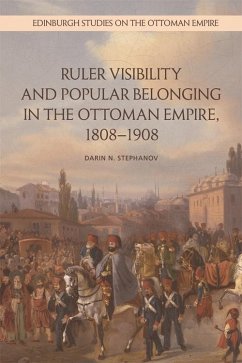
Arabs in the Early Islamic Empire (eBook, ePUB)
Exploring al-Azd Tribal Identity
Versandkostenfrei!
Sofort per Download lieferbar
21,95 €
inkl. MwSt.
Weitere Ausgaben:

PAYBACK Punkte
11 °P sammeln!
Examining a single broad tribal identity - al-Azd - from the immediate pre-Islamic period into the early Abbasid era, this book notes the ways it was continually refashioned over that time. It explores the ways in which the rise of the early Islamic empire influenced the peoples of the Arabian Peninsula who became a core part of it, and examines the connections between the kinship societies and the developing state of the early caliphate. This helps us to understand how what are often called 'tribal' forms of social organisation identity conditioned its growth and helped shape what became its ...
Examining a single broad tribal identity - al-Azd - from the immediate pre-Islamic period into the early Abbasid era, this book notes the ways it was continually refashioned over that time. It explores the ways in which the rise of the early Islamic empire influenced the peoples of the Arabian Peninsula who became a core part of it, and examines the connections between the kinship societies and the developing state of the early caliphate. This helps us to understand how what are often called 'tribal' forms of social organisation identity conditioned its growth and helped shape what became its common elite culture.
Studying the relationship between tribe and state during the first two centuries of the caliphate, author Brian Ulrich's focus is on understanding the survival and transformation of tribal identity until it became part of the literate high culture of the Abbasid caliphate and a component of a larger Arab ethnic identity. He argues that, from pre-Islamic Arabia to the caliphate, greater continuity existed between tribal identity and social practice than is generally portrayed.
Studying the relationship between tribe and state during the first two centuries of the caliphate, author Brian Ulrich's focus is on understanding the survival and transformation of tribal identity until it became part of the literate high culture of the Abbasid caliphate and a component of a larger Arab ethnic identity. He argues that, from pre-Islamic Arabia to the caliphate, greater continuity existed between tribal identity and social practice than is generally portrayed.
Dieser Download kann aus rechtlichen Gründen nur mit Rechnungsadresse in A, B, BG, CY, CZ, D, DK, EW, E, FIN, F, GR, HR, H, IRL, I, LT, L, LR, M, NL, PL, P, R, S, SLO, SK ausgeliefert werden.













